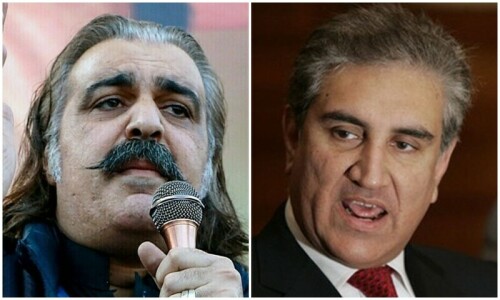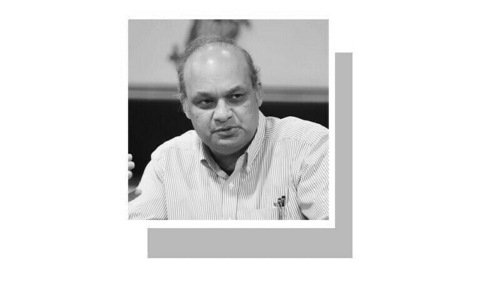WASHINGTON, Feb 5: Political turmoil in Pakistan has not seriously threatened the military’s control of its nuclear weapons “but vulnerabilities exist,” the US intelligence chief told a congressional panel on Tuesday.
J. Michael McConnell, director of US National Intelligence, also blamed “terrorists” for killing former prime minister Benazir Bhutto and warned that it “could embolden militants, increasing their confidence that they can strike the Pakistani establishment anywhere in the country”.
In his annual report to the Senate Select Committee on Intelligence, Mr McConnell noted that India and Pakistan were not involved in a Cold War-style nuclear arms race.He blamed Pakistan-based Kashmiri militant groups for participating in Al-Qaeda-sponsored attacks inside Afghanistan.
“We judge the ongoing political uncertainty in Pakistan has not seriously threatened the military’s control of the nuclear arsenal, but vulnerabilities exist,” said Mr McConnell in his annual report to Congress.
Noting that the Pakistan Army was responsible for the country’s nuclear programmes, the report said: “We judge that the army’s management of nuclear policy issues -- to include physical security -- has not been degraded by Pakistan’s political crisis.”
Assessing the nuclear competition between India and Pakistan, the report notes that missile tests and new force deployments over the past three years have not affected the ongoing political dialogue.
“Although both New Delhi and Islamabad are fielding a more mature strategic nuclear capability, they do not appear to be engaged in a Cold War-style arms race for numerical superiority,” the report observes.
The report describes Pakistan as a critical partner in US counter-terrorism efforts, but notes that the country continues to face an array of challenges complicating its effectiveness against Al Qaeda and other radical elements operating in the country.
These challenges include coping with an unparalleled level of suicide attacks ordered by Pakistan-based militants, many of whom are allied with Al Qaeda.
The report notes that at least 865 security forces and civilians were killed by suicide bombings and explosive devices in 2007. Four hundred ninety-six security forces and civilians also were killed in armed clashes in 2007 to make a total of 1360 killed in 2007.
Total casualties in 2007, including the number of injured security forces and civilians, exceeded the cumulative total for all years between 2001 and 2006.
The report also notes that Pakistan is establishing a new modus vivendi among the army, President Musharraf, and elected civilian leaders now that Mr Musharraf has stepped down as army chief.
Pakistani authorities are increasingly determined to strengthen their counter-terrorism performance, even during a period of heightened political tension that the US expects to continue over the next year.











































Dear visitor, the comments section is undergoing an overhaul and will return soon.